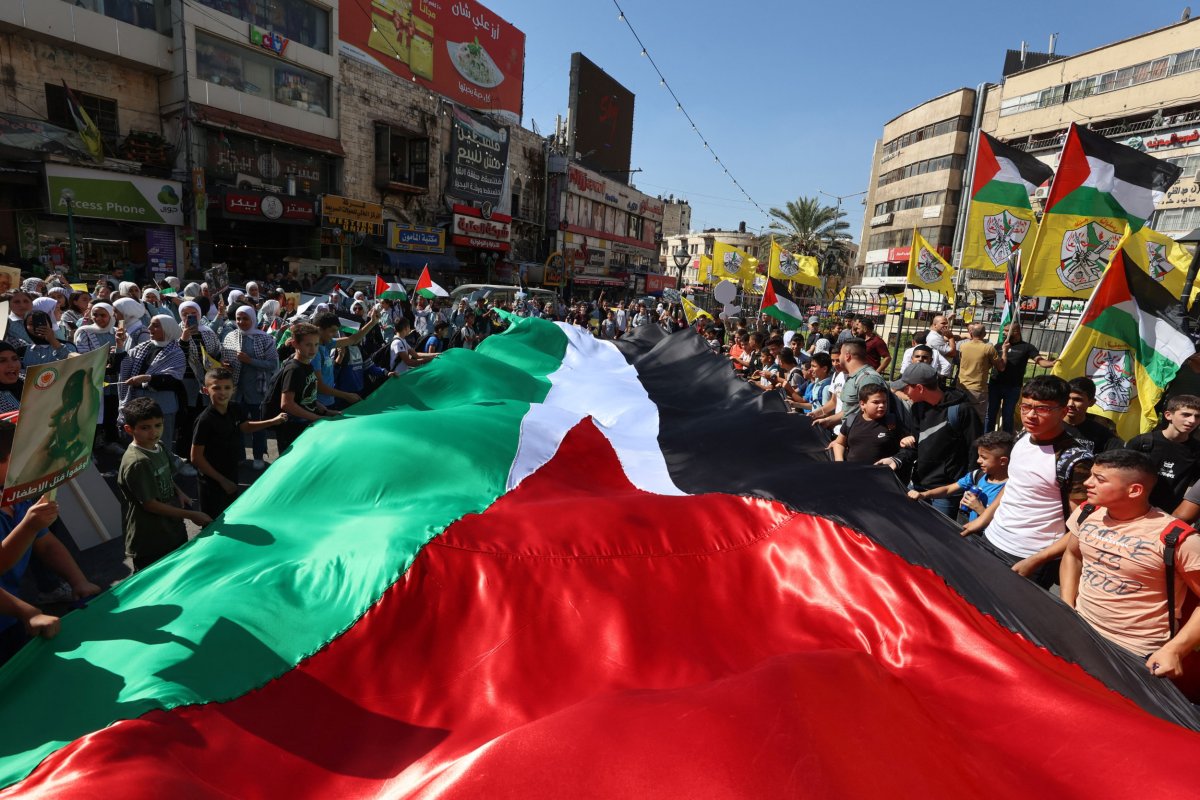Most of us are still trying to process the horrors unfolding as war rages in Israel and Gaza. Yet one of the key features of the conflict is becoming crystal-clear: The high price women pay for war. While it is well-documented that gender-based violence against women and girls increases during conflict—with mass rape often used as a strategy to tear apart families and communities—this latest Middle East crisis also shows other costs women pay.
In Israel on Oct. 7, women saw their children killed in front of them, were beaten, murdered, raped, and dragged to Gaza where they are now held as hostages. Israel's response so far—even before any ground invasion, which is sure to be devastating—has taken a unimaginable toll on the women and their children living in the Gaza Strip.
The United Nations Women's Rapid Assessment and Humanitarian Response in the Occupied Palestinian Territory reports that the current crisis is already having a devastating impact on the lives of women and girls in Gaza. The agency states that already almost 493,000 women and girls in Gaza have been displaced from their homes and an estimated 900 women are joining a growing number of widows.

Aid agencies also warn of the need to address gender vulnerabilities that are "rooted in structural gender discrimination," such as laws in Palestine that assume women to be under the protection and guardianship of men. How does society accommodate the large displaced population of women and girls, and new female-headed households.
But it's the dangers and horrors of giving birth during a war that is really being exposed in this current crisis, and we all need to pay attention because we are being shown in real time that women's rights are human rights and women's health is something we all need to be invested in.
"UN Women has called for an immediate humanitarian ceasefire and unimpeded access for humanitarian aid, including food, water, fuel, and health supplies that are critical for the survival of women and girls in the Gaza Strip," Sarah Hendriks, UN Women's interim deputy executive director said in a press release. "It is imperative that we ensure immediate access to services for women and girls and ensure the prevention of gender-based violence. As the international community seeks to respond to this crisis, we must also wholeheartedly support and invest in women-led organizations which are at the front-line of the humanitarian response and promote the meaningful participation of women in humanitarian and political processes."
Even before this current crisis, things were already bad for birthing people in Gaza. The United Nations estimates that one in four pregnant women in Gaza, one of the most densely populated areas in the world, were considered high-risk. Infant mortality was already at 13 percent. Now experts estimate that about 10 percent of Gaza's 84,000 pregnant women are expected to deliver in the next month as airstrikes continue; some have already given birth in unimaginable conditions.
"We're going to see a significant increase in infant and maternal mortality, not just from airstrikes, but from inability to feed an infant and to deliver in safe, hygienic circumstances," Dr. Yara M. Asi, an assistant professor at the University of Central Florida's School of Global Health Management, who spent years chronicling the medical crisis in occupied Palestinian territory, said in an interview. "During the last few months of pregnancy, you need not just medical care, but nutritional food, access to clean water, some feeling of mental safety. If the deprivation continues, pregnant women are going to start dying of malnutrition and lack of water."
As war ravages through the region, women must also deal with with increased psychological trauma, the possibility of unwanted pregnancies from rape and high-risk abortion practices which will all have a tremendous impact on women's reproductive health and rights. What I find the most striking and horrifying reality is that even in modern times, modern warfare does not spare women who still pay the ultimate price for war with our bodies and our health.
Anushay Hossain is a writer and a feminist policy analyst focusing on women's health legislation. She is a regular on-air guest at CNN, MSNBC, and PBS, and her writing on politics, gender, and race has been published in Forbes, CNN, USA TODAY, The Daily Beast, and more. Hossain is also the host of the Spilling Chai podcast and author of "The Pain Gap: How Sexism and Racism in Healthcare Kill Women."
The views expressed in this article are the writer's own.
Uncommon Knowledge
Newsweek is committed to challenging conventional wisdom and finding connections in the search for common ground.
Newsweek is committed to challenging conventional wisdom and finding connections in the search for common ground.





